The death toll from last week’s devastating earthquake in Myanmar has climbed to 3,354, state media reported Saturday, as U.N. agencies and global aid groups scale up emergency relief efforts.
The 7.7-magnitude quake struck a vast portion of the country, heavily impacting six regions and states, including the capital, Naypyitaw.
The tremor knocked out power, phone lines and mobile networks in many areas, while damage to roads and bridges has hampered rescue and assessment efforts.
The disaster has deepened an already dire humanitarian crisis fueled by civil war, which has displaced more than 3 million people and left nearly 20 million in need of assistance, according to the United Nations.
Military leader Senior Gen. Min Aung Hlaing said the quake was the second most powerful in Myanmar’s recorded history, surpassed only by an 8.0-magnitude tremor east of Mandalay in May 1912.
A report in the state-run Global New Light of Myanmar newspaper on Saturday said the death toll from the March 28 disaster had reached 3,354, with 4,850 injured and 220 missing. It also said rescuers had saved 653 survivors trapped under debris.
Myanmar’s military seized power in 2021 from the democratically elected government of Aung San Suu Kyi, sparking armed resistance now believed by analysts to control more territory than the army.
Members of the U.N. Security Council “recognized the need to strengthen rescue, relief and recovery efforts and to scale up immediate and rapid humanitarian assistance in response to the requests to help the people of Myanmar, supported by the international community,” said Council President Jérôme Bonnafont of France in a press statement Friday.
In an apparent reference to ongoing fighting and concerns that Myanmar’s military government might block or delay aid to resistance-held areas, the statement said council members “affirmed the importance of a safe and conducive environment to ensure the timely and effective delivery of life-saving humanitarian assistance to all those in need, without disruption or discrimination.”
Major General Zaw Min Tun, a spokesperson for the military government, told media Saturday – upon returning from a regional summit in Bangkok – that prime ministers and officials from attending countries, including India and Thailand, pledged to provide necessary assistance for relief efforts and rehabilitation in quake-hit areas.
“Everyone helped Myanmar that suffered from the earthquake. Everyone sympathized. Everyone understood. Everyone was willing to help. It can be seen everyone working together practically,” Zaw Min Tun said.
He added that 18 countries were providing assistance to affected areas and that more than 60 aircraft had flown in to transport rescuers and relief supplies.
The United Kingdom allocated a further 10 million euros (about $12.8 million) to the ongoing humanitarian response, its embassy in Yangon said in a statement Saturday, bringing its total contribution to 25 million euros (about $32 million) in aid.
There has been an unusual flurry of diplomatic activity in recent days around Myanmar, which is typically reluctant to engage with much of the international community.
Min Aung Hlaing and senior members of his government are shunned and sanctioned by many Western countries for their 2021 takeover and human rights abuses. His trip to the Thai capital, Bangkok, marked his first visit to a country outside of Myanmar’s main backers – China, Russia and Belarus – since he attended a regional meeting in Indonesia in 2021.
Back in Myanmar on Saturday, Min Aung Hlaing hosted Malaysian Foreign Minister Mohamad Hasan and Thai Foreign Minister Maris Sangiampongsa to discuss relief assistance from fellow Association of Southeast Asian Nations members and cooperation on health care in quake-affected areas.
Although diplomatic activity has centered on earthquake relief, observers note that Myanmar’s crisis will not end until the civil war does. Regional neighbors have been leading peace efforts, even as neither the military nor resistance forces have shown serious interest in negotiations.
However, the military and several key armed resistance groups declared temporary cease-fires Wednesday in the wake of the earthquake to facilitate the flow of humanitarian aid.
The U.N. Human Rights Office on Friday accused the military of continuing attacks, citing more than 60 incidents since the earthquake, including 16 after the cease-fire was announced.
On Saturday, the opposition’s shadow National Unity Government, which leads resistance to military rule, accused the army of launching 63 airstrikes and artillery attacks since the quake, killing 68 civilians, including one child and 15 women.

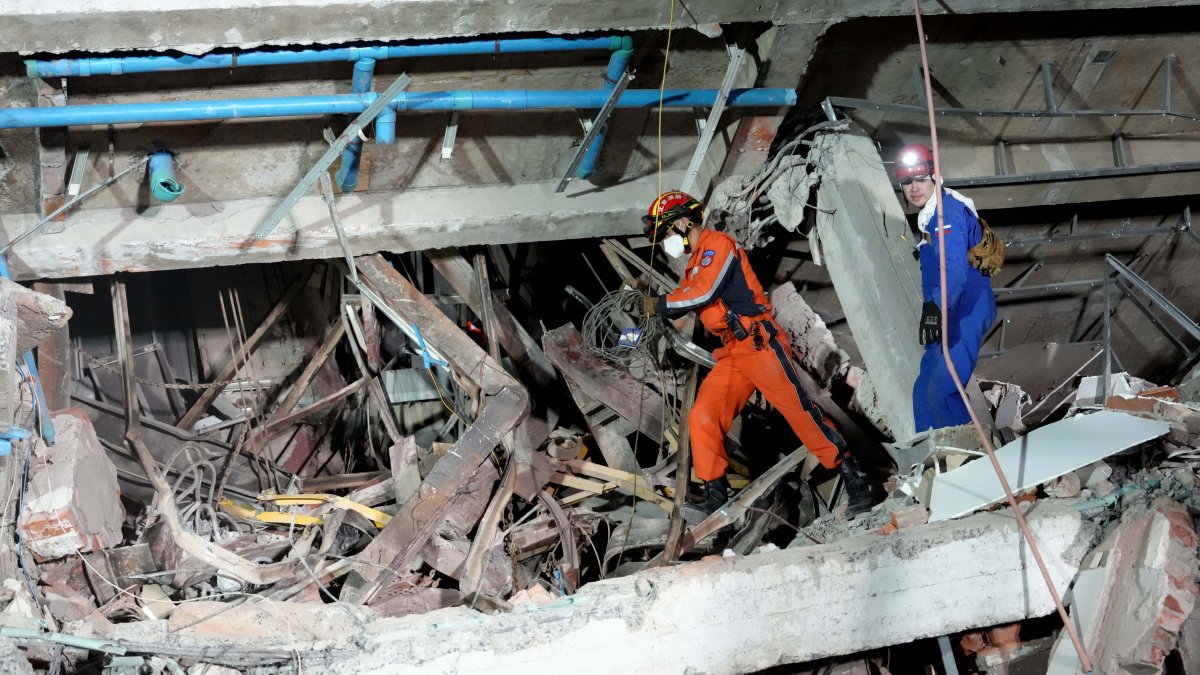


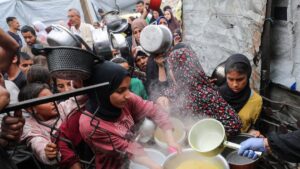

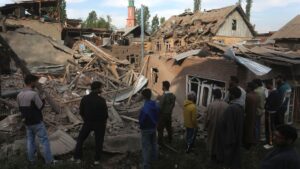
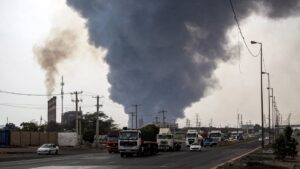


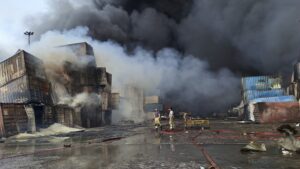


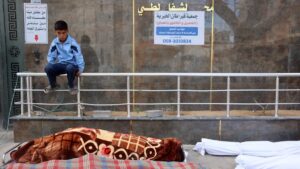

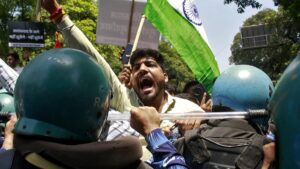

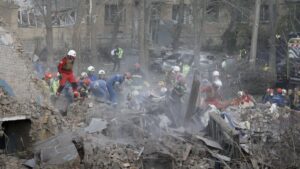





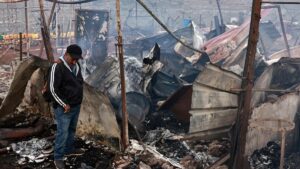
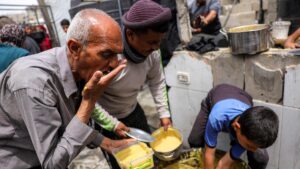


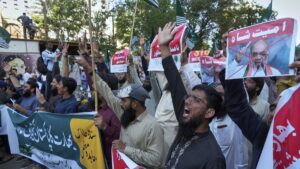
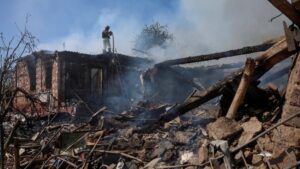

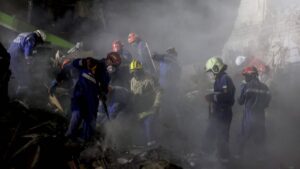

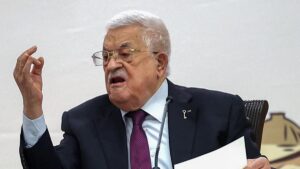
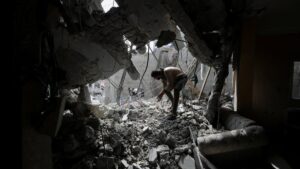

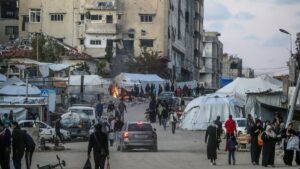




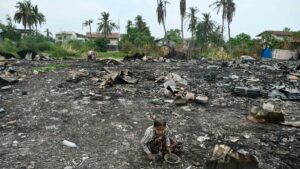


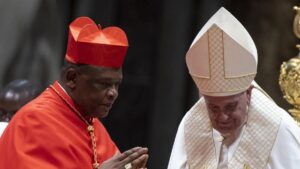


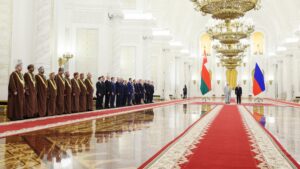
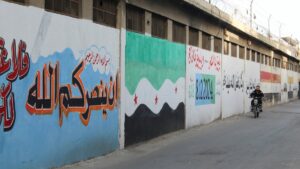




Be First to Comment